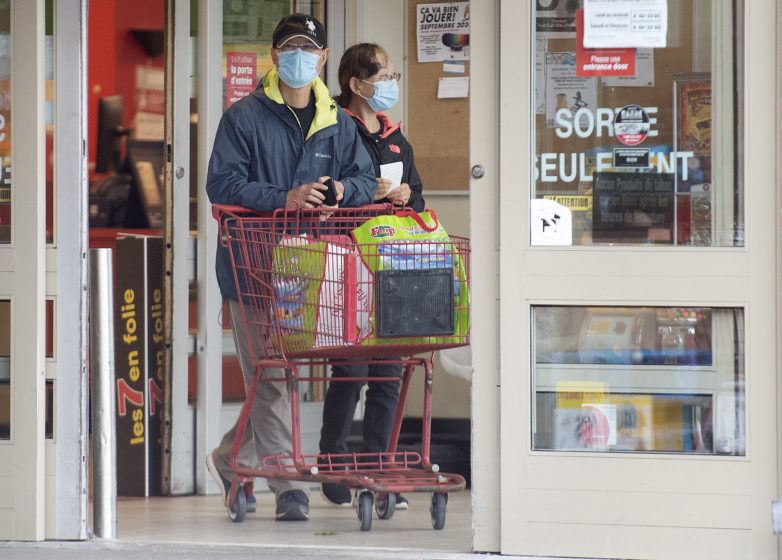Only The Wealthy Are Recovering From The COVID Recession

By Karen Dolan
Before the pandemic, Rosaline Baptiste was working full time cleaning houses in New York.
Her pay was less than a living wage, but she had a roof over her head and could send much-needed cash home to her children and elderly mother on the hurricane-ravaged island of Dominica. Now she has work only two days a month. She lives in a shelter and can no longer help her family financially.
In Texas, Denita Jones was keeping herself and her children safe from the virus, relying on unemployment while her workplace was closed. But when her workplace opened, the help expired - and the state's eviction moratorium ended. None of that changed when the state's COVID-19 infection rates skyrocketed. Now, the anxiety of having to put her children's health at risk to put food on the table and avoid eviction is taking its toll.
Even before the pandemic, nearly 140 million people in this country were considered poor or low-income. Now, they're suffering even more acutely than before. I've spent the last several months interviewing some of these people as they struggle to make ends meet.
Nearly six months after reopening, the U.S. jobless rate remains stunningly high, and the latest jobs report was worse than expected.
According to a new survey from the Robert Woods Johnson Foundation and NPR, nearly half of all U.S. households report experiencing serious financial instability as a direct result of the current recession. Food insecurity has doubled in the United States, while fully one in three children in renter households is either food-insecure, housing-insecure or both.
But that doesn't mean that everyone's suffering.
My colleagues at the Institute for Policy Studies calculate that America's billionaires have collectively seen their wealth increase by nearly $850 billion, or 29%, since the pandemic started. For the wealthiest among them - Jeff Bezos, Bill Gates, Mark Zuckerberg, Warren Buffett and Elon Musk - the increase is closer to 60%.
We are living through what economists call a "K-shaped recovery." That is, the recovery line for the wealthy is on its way up while the line for everyone else continues to crash downward.
In truth, this process was underway well before the first case of COVID-19 was detected.
In 2017, President Donald Trump and the GOP passed a trillion-dollar tax cut that mainly helped the wealthy, exploding the deficit and putting a strain on social programs for those already struggling to get by. Over half of the stock market is now owned by the top 1% of earners.
Throw in a recession where the lowest-paid workers were the most likely to see their livelihoods vanish and you get an astonishing acceleration of inequality.
If you want to get a sense of how lopsided things were even before that point, consider this: In the early months of the pandemic, the official poverty rate - widely seen as an undercount of how many people are actually struggling - actually ticked down.
How could that be possible? Because the March federal relief package issued those $1,200 payments and boosted unemployment benefits. With this emergency aid, many desperately poor families were briefly better off than they were before.
But it didn't last. Extended and enhanced unemployment benefits lapsed, a federal eviction moratorium ended, and there's been no more direct cash aid even as the pandemic has ground on. The Democratic-controlled House of Representatives passed another desperately needed relief bill back in May, but the White House and GOP-controlled Senate have taken no action on it.
More recently, Federal Reserve Chief Jerome Powell gave a stern warning that the economy desperately needs a robust relief package. Then Trump briefly ended negotiations with the Democrats on relief.
For all but the wealthiest Americans, this recession is far from over. If we as a country prioritize evidence-based virus safety measures, we won't just wear a mask and practice social distancing. We'll pass a robust relief package that helps those who need it most, so we can weather the storm and end the recession for all of us.
Karen Dolan directs the Criminalization of Race and Poverty Project at the Institute for Policy Studies. She wrote this for InsideSources.com.
Copyright 2020 Tribune Content Agency.



Pie Insurance Sees Record Growth and Surpasses $100M in Premium
What Car Insurance Policies Cover Fire Damage – New Guide
Advisor News
- Paul Brahim becomes 2025 FPA president
- How can people tell if you are sincere?
- Ex-employees sue Verizon over pension transfer deal with Prudential, RGA
- Gary Brecka, Cardones file dueling lawsuits in battle of social media stars
- Confidence is key to cold calling success
More Advisor NewsAnnuity News
- AmeriLife To Acquire Crump Life Insurance Services
- Sapiens wins XCelent award for Customer Base and Support for UnderwritingPro for Life & Annuities
- SB 263 expected to bring chaos to Calif. insurance, annuity sales come Jan. 1
- Lincoln Financial hires industry veteran Tom Morelli as Vice President, Investment Distribution
- Structured settlements protect young injury victims | H. Dennis Beaver
More Annuity NewsHealth/Employee Benefits News
- Analysis Group Reports Findings in Managed Care and Specialty Pharmacy (Impact of social determinants of health on esketamine nasal spray initiation among patients with treatment-resistant depression in the United States): Drugs and Therapies – Managed Care and Specialty Pharmacy
- Americans’ rage at insurers goes beyond health coverage – the author of ‘Delay, Deny, Defend’ points to 3 reforms that could help
- Ask The Medicare Specialist
- AmeriLife To Acquire Crump Life Insurance Services
- Waterlily: Taking the guesswork out of LTC planning
More Health/Employee Benefits NewsLife Insurance News
- Court orders UnitedHealth companies to pay millions to Mass. consumers
- AmeriLife To Acquire Crump Life Insurance Services
- How the life insurance industry can restore its relevance
- A-Cap suspends Sentinel Security Life business; gets reprieve for Atlantic Coast Life
- Hidden risk: The impact of financial markets on life insurance
More Life Insurance News